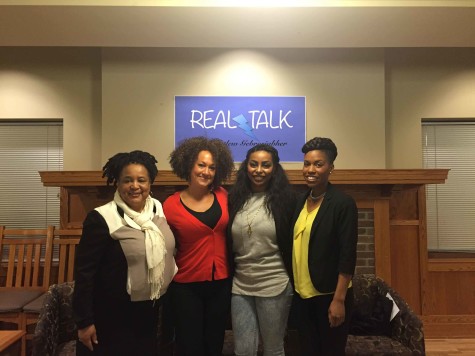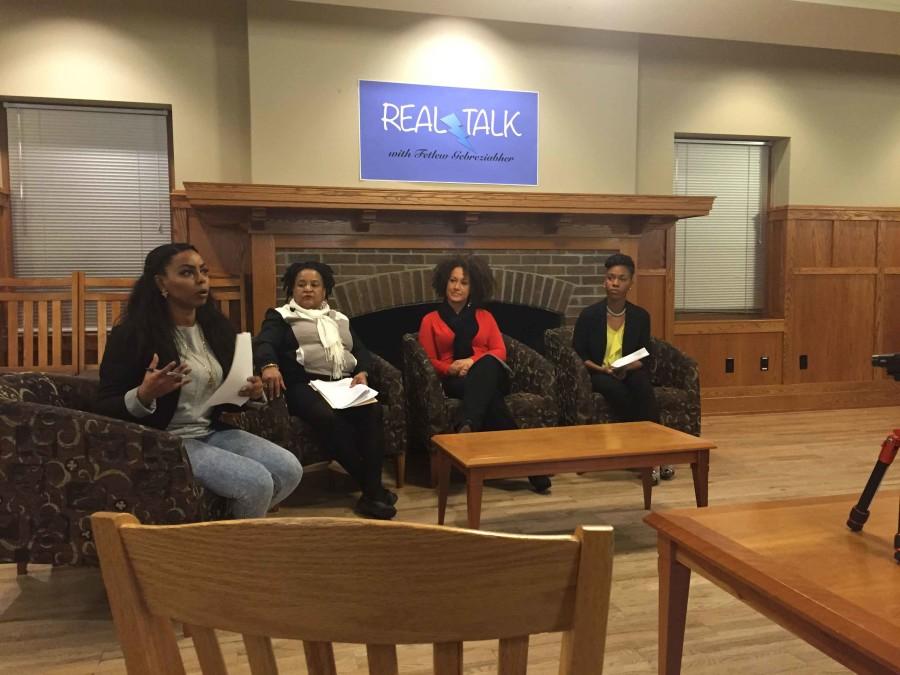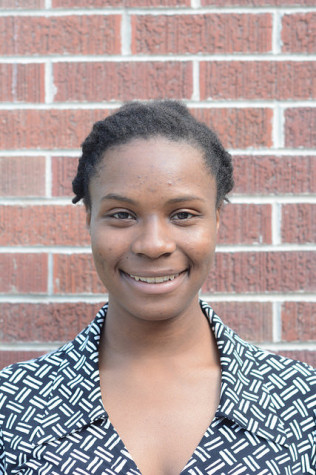“Real Talk” provides real perspective
Photo contributed by the Africana Studies Department
Speakers at Real Talk event on campus.
February 13, 2015
About thirty faculty, staff and students, primarily women of color, congregated in Monroe 205 on Feb. 10 to listen and participate in a “Real Talk” event titled “Black Women’s Strength, Resilience and Dedication: Conversations with Black Spokane Women.”
The event was hosted by Fetlew Gebreziabher, a junior journalism major. Gebreziabher took the chair off the side and introduced her panelists, Dr. Gloria Baynes and professor Rachel Doležal, both of the Africana Education Program, and Lanae Dedmond, a non-traditional freshman, student leader and mother.
The panelists discussed the challenges and stigmas around single, black motherhood, the challenges of raising young, black men in the United States and the fear that the names of their own boys could become the next protest hashtag.
“When Treyvon Martin was killed, [my son] was the same age, same height, same weight as Treyvon … and his favorite candy was always Skittles,” said Doležal. “It’s not just, ‘That could be my child,’ but, ‘That is my child’”
Doležal also related an incident where she reprimanded her 12-year-old son for nearly exiting their home by the front door with his pellet gun. “That stays in the back,” she told him. “You leave out the back door.” A couple weeks later, Tamir Rice, a 12-year-old black boy in Cleveland, Ohio, was shot by police while playing with a similar model of pellet gun in a park.
“It becomes frightening to realize there’s a very small margin for error with our black sons,” said Doležal.
The panelists shared other challenges of raising black children, including the assumptions of teachers.
“They have low expectations of them. … The same thing is happening today as in the 1960s,” said Baynes, whose sister and son were both assumed to be poor readers despite reading above grade level in elementary school.

Photo contributed by Africana Studies Department.
Dedmond discussed the challenges of dating as a black woman and simultaneously trying to find positive male role models for her son.”I have high standards; I’m very protective,” she said.
“Right now, I have my godfather, and he’s not black, he’s actually white. That’s probably the closest thing they have to [a father figure],” said Dedmond, acknowledging that male role models for her kids by necessity cannot always take the form of a romantic partner for her.
All three women agreed that a variety of issues, including perceived competition between African-American men and African-American women, incarceration, unemployment and cultural notions of male leadership add tension to intraracial gender relations.
The conversation lasted well over an hour and the panelists lingered afterward to offer audience members the chance to continue the conversation.









